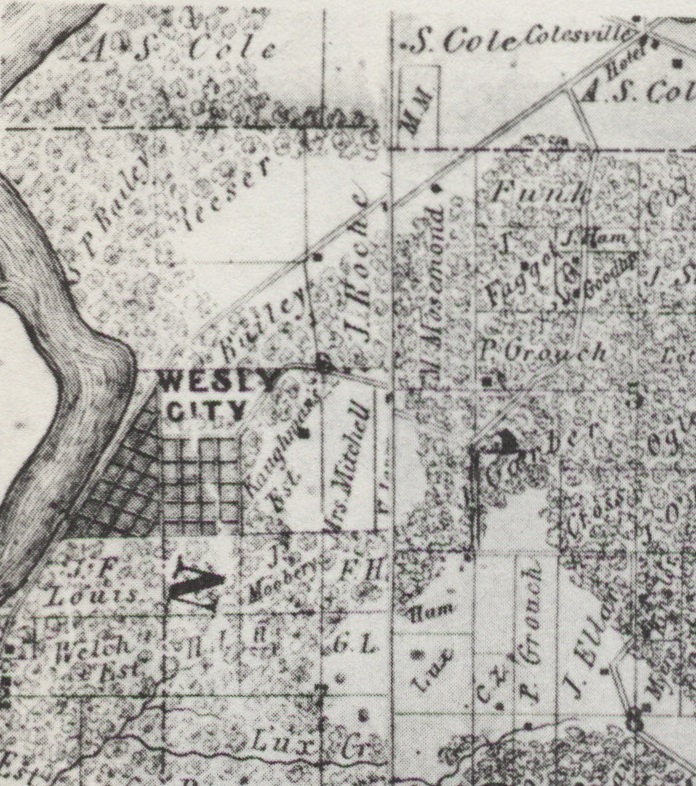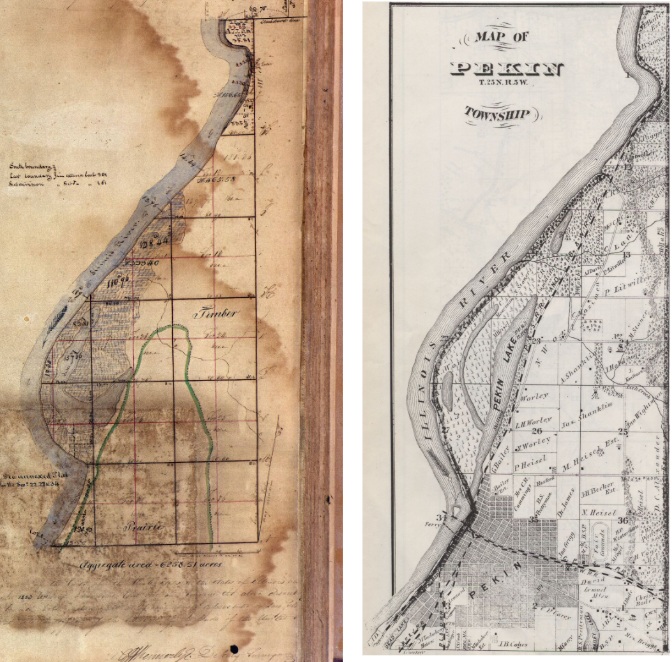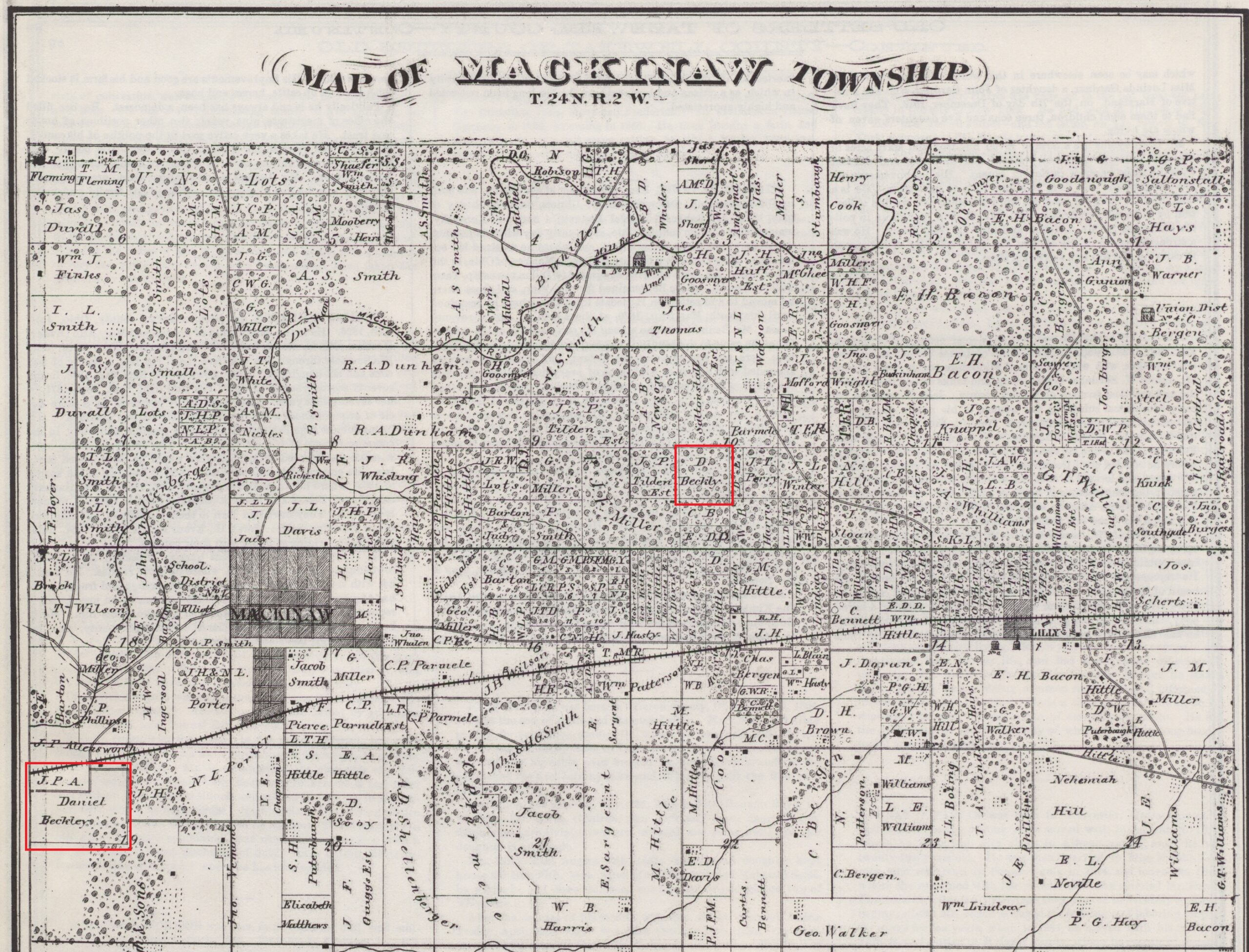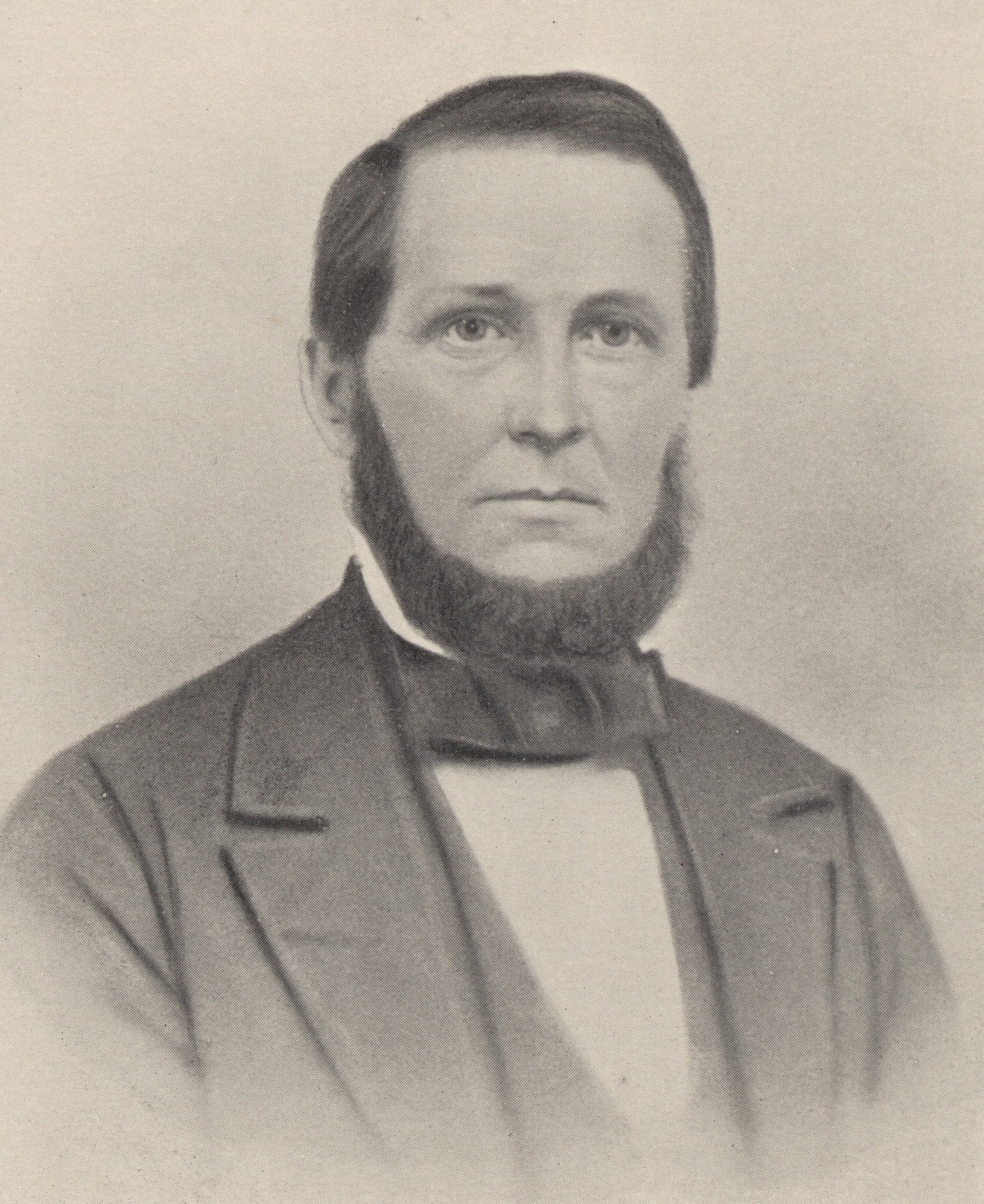This is a reprint of a “From the Local History Room” column that first appeared in September 2014 before the launch of this weblog.
Modern society has numerous private charitable organizations and public social welfare programs that provide assistance to those who are poor or in need. However, in the early years of Tazewell County, the poor – usually called by the older term, “paupers” – had few options. Those who were unable to work, and whose relatives could not or would not help them, could have their living expenses defrayed at public expense.
Often this form of assistance involved the county reimbursing private individuals for their expenses in providing for a pauper. This is what was done in the case of an elderly pauper of Tazewell County named Nicholas Miller, as explained on pages 246 and 253-254 of Charles C. Chapman’s 1879 “History of Tazewell County.”
Chapman writes, “In June, 1832, John Summers was allowed $78 for keeping old man Miller. In the June previous Summers came into Court and explained that a certain Nicholas Miller, a pauper, was living at county expense while he had a well-to-do son named Joseph, who should, both in equity of the law and from filial affection, support his father. Thereupon the Sheriff was posted after the undutiful Joseph. It appears, however, that Joseph was not found at the time, nor until 1834, if we rely upon the records for information, for no mention is made of him until that time. He then appears and gives as his reason for not supporting his parent, ‘inability to do so.’”
This episode illustrates the public welfare system then in use. The expectation was that a pauper’s family would provide for him. If they couldn’t do so, or refused to do so, then the county would provide money – but it would not be given directly to the poor person, but rather to whoever was “keeping” the pauper, and his keeper would have to petition the county court for the reimbursement.
Today, of course, $78 would not be much money, but the sum that Tazewell County paid to Summers for his year’s worth of expenses was not a small sum for the year 1832. To get a better idea of how much money that was, Tazewell County’s entire budget for 1832 consisted of only $689.50 in expenses and $729.24 in revenue.
In fact, money for paupers living at the county’s expense made up a not insignificant portion of Tazewell County’s expenditures in 1832. That is probably why the county court that year tried to rid the county of the expense of caring for its paupers Sarah Stout and Nicholas Miller – by attempting to sell them into servitude. According to Chapman, during the same court session when Miller’s son Joseph claimed an inability to provide for his father, Stout’s relatives Hosea Stout and Benjamin Jones also said they couldn’t provide for her.
“Thus,” Chapman writes, “the veteran and venerable paupers were thrown back upon the county, whereupon the Court ordered ‘Nathan Dillon and Wm. McClure to dispose of said paupers at public sale or private contract.’ It seems that they were not regarded as valuable paupers and not one bid was made for them. But all through the records for years are bills allowed for their maintenance. In 1835 the Court, being worried with the many claims for bills for supporting Miller, lifted up its voice and peremptorily commanded the Sheriff to sell him. The poor old man had outlived his years of usefulness and even became a burden to the indulgent county.”
Miller would remain on the county’s pauper rolls for the next decade. This is how Chapman tells the story of “The Last of Poor Old Nic. Miller”:
“During the years 1840 and ’41 we find a remarkable increase in the number and amount of bills allowed for keeping paupers. Throughout the record during these two years are bills upon bills of this nature. The increase seemed surprising to the Commissioners themselves, and they made particular inquiry into the status of affairs before granting the bills. It seems the county was imposed upon in several instances by the unnatural actions of those who preferred that their relations should be kept at the county’s expense rather than their own. One Jane Morrill it was found had a husband living able to provide for her.
“Poor old Nic. Miller, the ancient pauper, was still on hand, but his bill these years was curtailed to nearly one-half. Year after year the customary bill for his support was handed in, until through familiarity the name of ‘Nic. Miller’ became a by-word. We doubt not that when the old veteran died, and no more bills for his care were presented to the Court, the generous, kind-hearted Commissioners dropped a tear, felt a pang of sorrow steal through the tender cords of their heart, and softly muttered, ‘Poor old Nic. Miller is no more!’ Death, the poor man’s best friend, called the old gentleman away during the year 1845. The poor old man who had been refused bread by his own son, and who had been buffeted about by many adverse winds, now returned to trouble them no more.”










